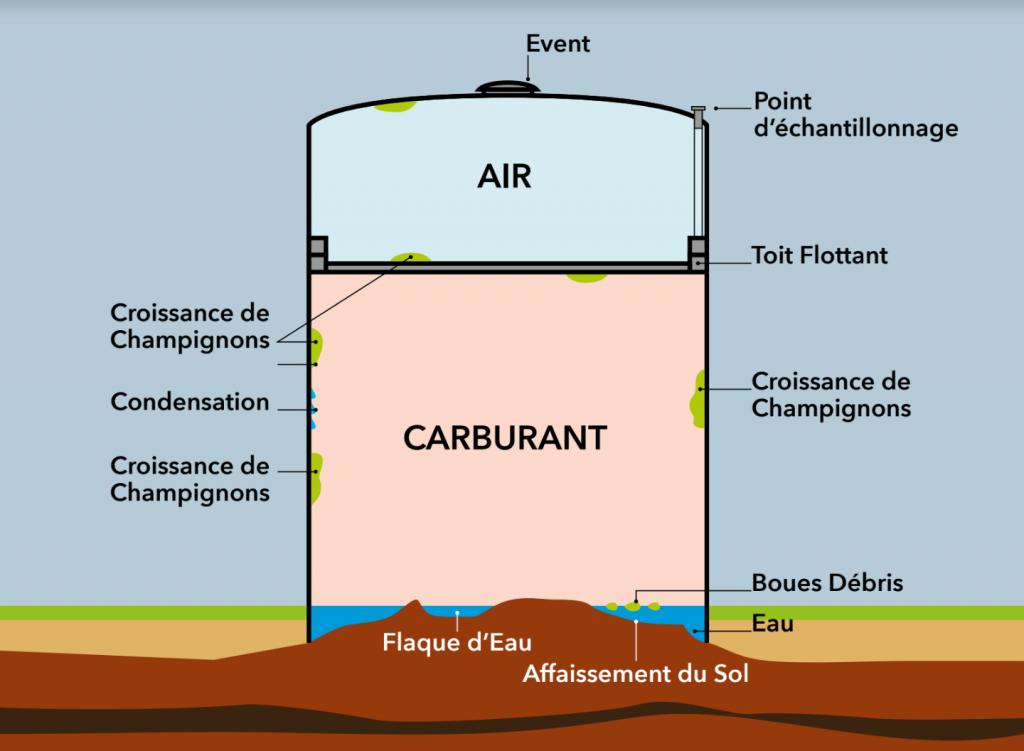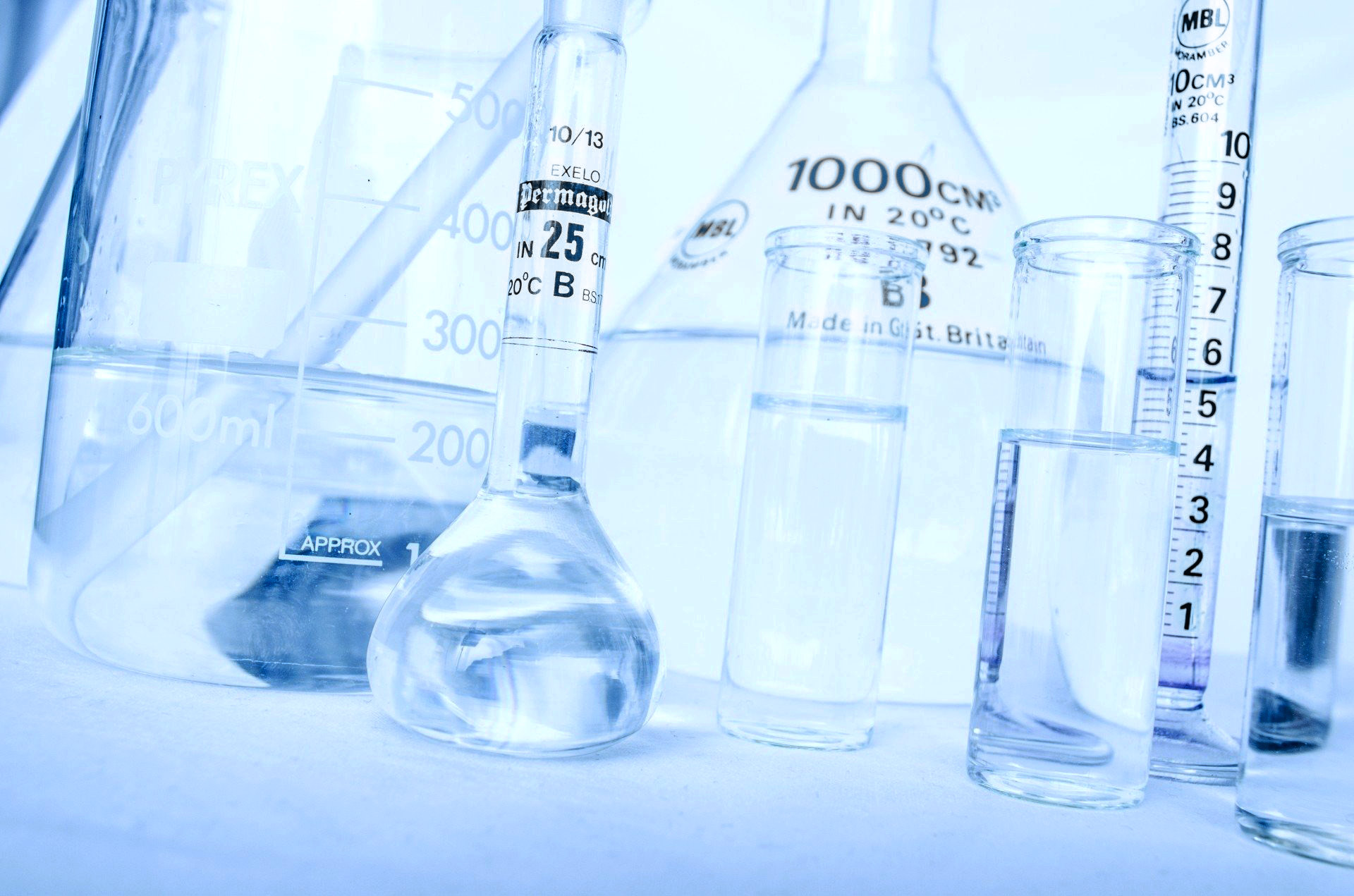What is fuel contamination by microorganisms?
Petroleum products are omnipresent in global economic activity. In particular, they are indispensable in transport and heating with the various fuels (kerosene, diesel, heating oil and biofuel).
Biocontamination occurs throughout the production and distribution chain, particularly during storage phases: tanks in oil depots, service station tanks, aircraft tanks, ships, vehicles, etc.
How do fuels become contaminated?
- By the presence of water
Bacteria, yeasts and fungi live in the feet of water in the tanks from natural condensation and concentrate at the interface with the fuel on which they feed.

Indeed, the natural respiration of fuel storage tanks and reservoirs as well as rainwater infiltration for floating roof tanks contribute to introduce a certain amount of water which, more often than not, settles at the bottom of the tanks (diagram below). It is then a favourable environment for the proliferation of micro-organisms.
"Aerobic hydrocarbonoclast microorganisms, bacteria, and fungi develop at the water-hydrocarbon interface and on the walls at the bottom of the tank. In addition to the formation of fungal mycelium, lipopolysaccharid biosurfactants are produced during bacterial growth on medium- or long-chain alkanes. A biofilm with blocking properties is thus formed. Water purging samples are murky or emulsionized and contain gelatinous masses. In the anoxic environment of the bottom of the bin water other bacteria are developed, including sulphate-reducing bacteria that produce H2S and cause corrosion. Species, which contain lighter hydrocarbons, are less prone to the production of surfactants. » (MICROBIOLOGIE PETROLIERE, Jean- Paul VANDECASTEELE)
The growth of these microorganisms is sometimes very fast. As they grow, they form colonies, skins and debris. The organic matter thus accumulated, when it migrates into the fuel, can cause serious incidents of use: clogged filters, corrosion of the circuits by acids or other aggressive substances, deterioration of the injection system, sometimes even seizure of the piston-cylinder assembly. Complete blockage of the fuel supply system is rarely observed, but partial blockage is sufficient to impair performance and lead to overfuelling as the engines do not operate at optimum efficiency.
The best method to prevent the development of germs is to drain the water from the reservoirs frequently.
- By the presence of diester
Another cause of biodeterioration is the increasing use of biofuels, due to the rising price of fossil fuels and environmental concerns. Water is introduced into biodiesel during the manufacturing process. It can also be absorbed during storage, as fatty acid methyl esters are much more hydroscopic than normal diesel. The amount of water in biodiesel affects its calorific value and, above all, the life of the fuel, because biodiesel in large amounts of water has a lower stability against microorganisms.
What are the consequences of fuel bio-contamination?
The proliferation of these micro-organisms, which is particularly important in the case of middle distillates: diesel, kerosene and domestic fuel oil, causes many disadvantages:
Formation of insoluble products at the hydrocarbon/water interface causing the supply circuit to clog up (strainers, filters, injectors). The main consequence is the clogging of fuel filters, caused both by micro-organisms and the materials they produce.
- Appearance of metabolites which promotes the emulsification of the tank bottom water in the hydrocarbon and may render the product unfit for use. This can cause loss of fuel flow and damage to the injection system.
FRANCE ORGANO CHIMIQUE designs tests to control and decontaminate these high-risk fuels
In order to control the quality of a fuel and its conformity to specifications, we can perform MICROBIOLOGICAL ANALYSIS and CHEMICAL ANALYSIS
All you have to do is take fuel samples from the sterile bottles we provide.
We then send you a report with recommendations.
We place our experience at your service.
- The field test: MICROTEST P or theMicrobiological analysis in the laboratory: IP 385/19 is used to control fuel quality.
- The treatment product: FUELCIDE D 1.5.
- The search for water and sediment content, complementary analyses to the search for microorganisms and which allows the evolution of the fuel to be monitored over time .


